Essential oils have recently received much attention for helping with everything from headaches to insomnia to sore throats. But did you know that essential oils are also beneficial for mental health through aromatherapy?
The use of essential oils for therapeutic purposes is known as aromatherapy. A study by Springer Link has proven aromatherapy effective in managing psychiatric disorders. The aroma molecules in essential oils move straight from the olfactory nerves to the brain. When inhaled, it has a particular effect on the amygdala, the brain’s emotional center, leading to several health benefits. So, let’s discover the unique benefits of different essential oils for mental health.
Before we go into the details, here are a few things you should know about essential oils.
What are Essential Oils?
Compounds obtained from plants are known as essential oils. The oils capture the aroma and flavor of the plants or their “essence.”
Each essential oil has its unique aroma because of its aromatic components.
Essential oils are produced through the process of cold pressing, .i.e, extracting oil without applying any heat. After extracting the aromatic compounds, they are combined with a carrier oil such as vegetable oil. This process makes sure that direct contact with essential oil does not cause any irritation to the skin.
Thus, essential oils are concentrated plant extracts that retain their sources’ natural smell and flavor, or “essence.”
Essential oil effects on Mental Health
Essential oils are proven efficient in helping both the body and mind. Several types of oil are available to help you deal with mental health issues. Here is a list of the nine best-known essential oils and their benefits.
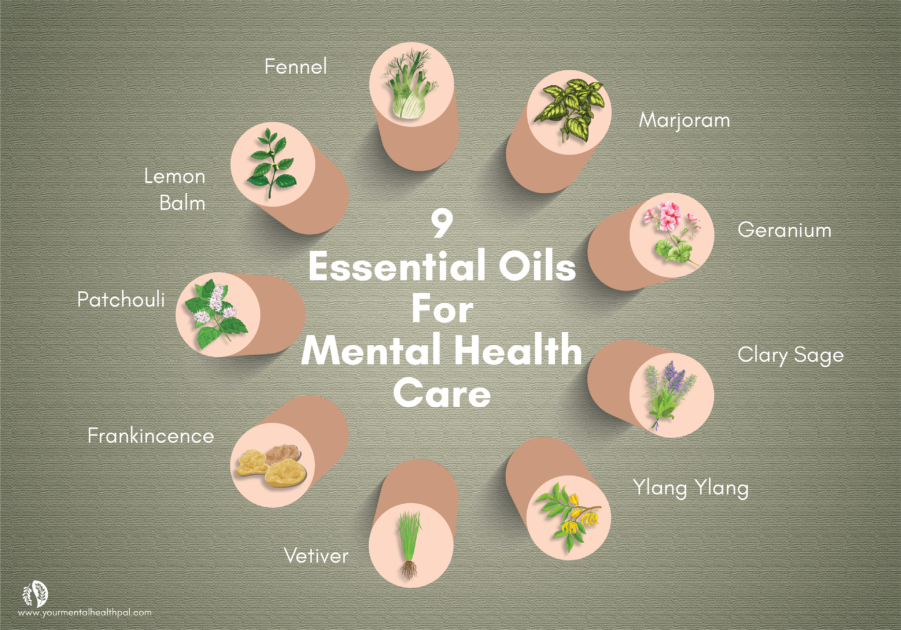
Nine essential oils for mental health care
1. Fennel
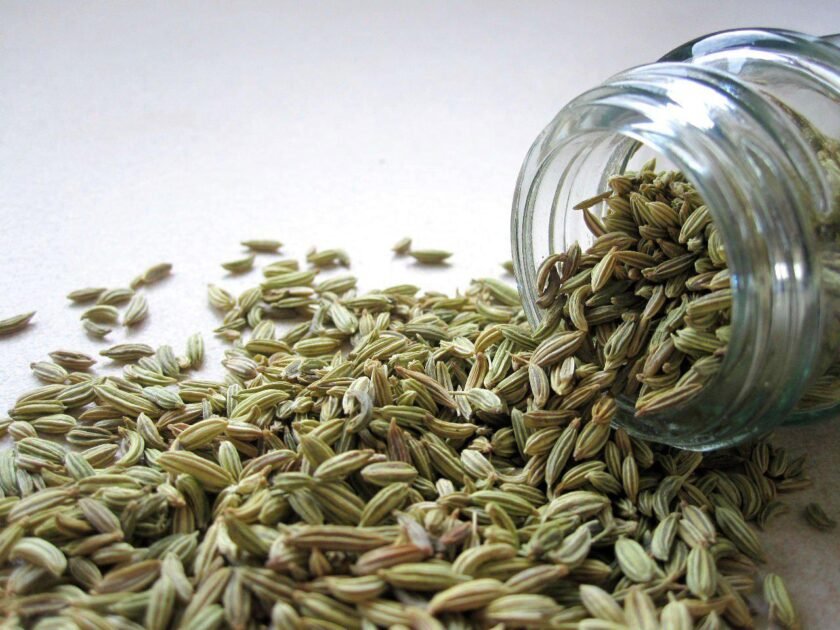
Fennel is most commonly used as a spice in cooking, and it’s a herb with licorice (anise) scent. The fennel plant seeds are used to produce essential oil. According to a study by Science Direct, it provides a relaxing impact, lowering anxiety and stress, making it one of the best essential oils for mental clarity and focus.
How to use: To help relax your body and mind, you can add diluted fennel oil to a warm bath.
Best used for: Fennel oil treats digestive issues, a common indication of anxiety. According to a study by WebMD, it’s also been used for menstruation irregularities, cough relief, and diuretic purposes (to increase urine flow).
2. Marjoram
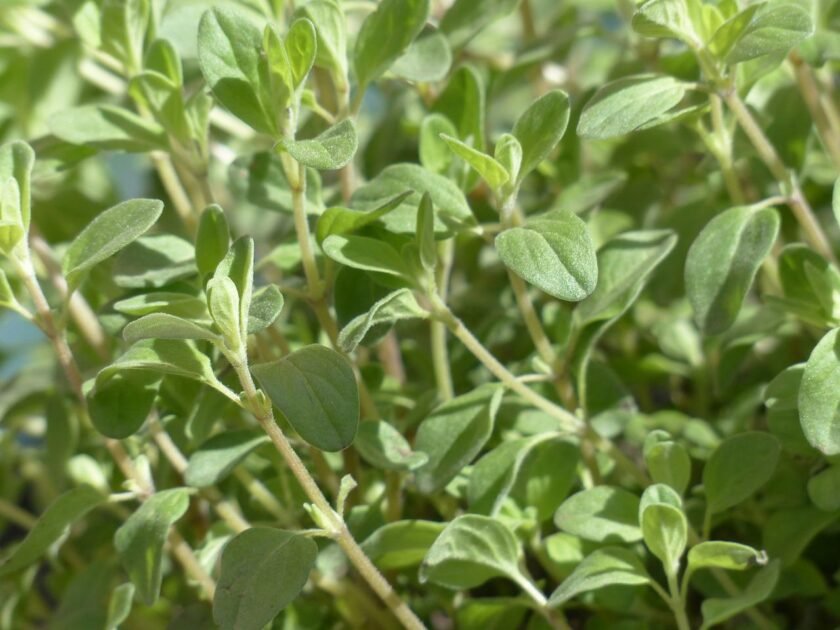
Sweet Marjoram is a herb that originated in the Mediterranean and is now grown worldwide. The plant’s flowers are used to extract the essential oil. According to a study by Science Direct, Sweet Marjoram is also used to treat headaches, a frequent anxiety sign. According to a study by the National library of medicine, many aromatherapists use it as a go-to folk cure.
How to use: Dilute the Marjoram essential oil with a carrier oil and massage on your temples. You can also dilute the oil and rub it on your wrists or put it in a diffuser.
Best used for: Sweet Marjoram essential oil can be utilized for aches and pains, digestive problems, and asthma.
3. Lemon Balm
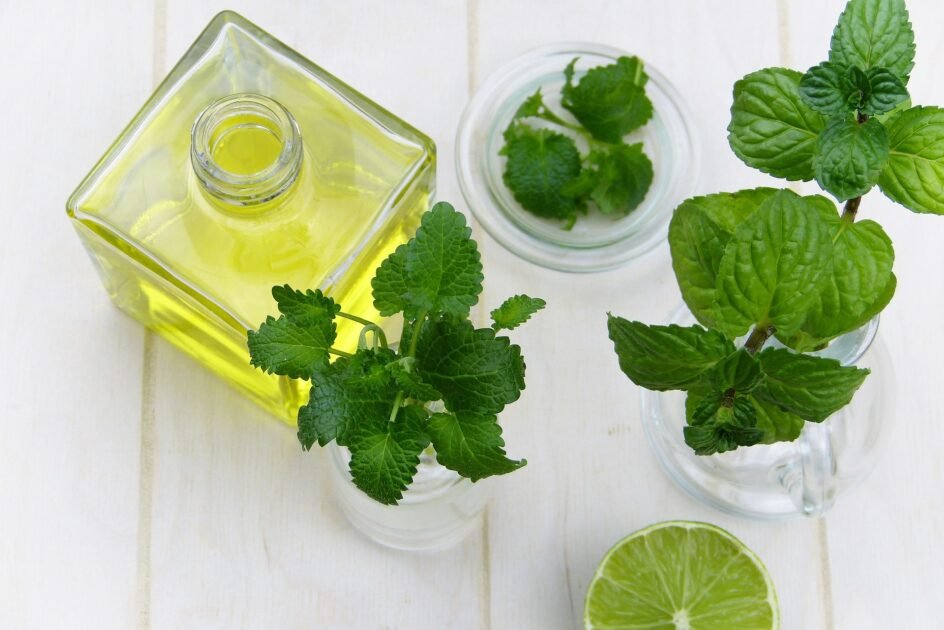
Lemon balm is a herb with a light, uplifting scent that is similar to lemons. It provides a soothing and calm effect in Aromatherapy. Moreover, it is known for improving mood.
How to use: Lemon balm is a pleasant essential oil in a diffuser to give your room a fresh aroma. Best used for: According to an article by The Garden Pharmacy, Lemon balm may aid digestive issues and cognitive function.
4. Geranium
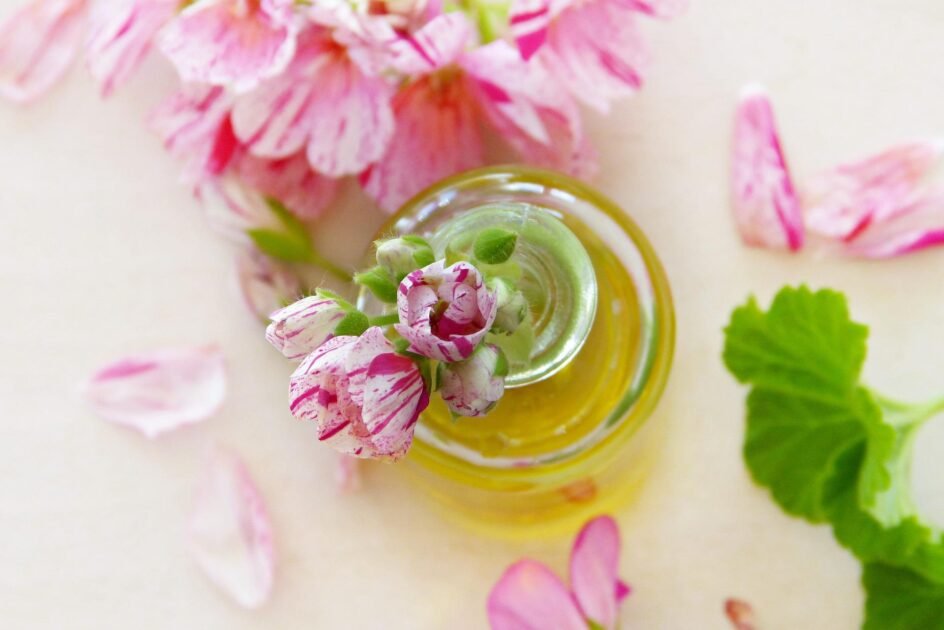
The Geranium essential oil has a sweet, floral aroma derived from the geranium plant. It’s commonly used in soaps, cosmetics, and fragrances as a scent. Sedative effects are present in this essential oil. As a result, it may be utilized to relieve stress or anxiety.
How to use: Waft a cotton ball with a few drops of Geranium essential oil under your nose a few times.
Best used for: According to a study by Online Library, Geranium essential oil can be used topically to treat inflammation, eczema, and skin aging. The geranium essential oil can also treat nerve discomfort and diabetes-related illnesses.
5. Patchouli

Ayurvedic medicine uses musk patchouli to treat various ailments, including tension and anxiety. Patchouli is a type of herb. The extract of the leaves and stems of the Patchouli plant is used.
How to use: Inhale Patchouli essential oil directly or dilute it in a warm bath or a room diffuser to reduce anxiety.
Best used for: According to a study by Science Direct, patchouli is a plant that can aid with depression. It may also have anti-inflammatory qualities, pain relief, and health benefits.
6. Clary Sage

Clary Sage is not the same as the Sage commonly used in Thanksgiving stuffing. It smells woody and is herbal. This essential oil is extracted from the plant’s purple-tinged leaves.
How to use: When worried, inhale Clary Sage essential oil straight or massage the diluted oil into your skin.
Best used for: According to a study by Science Direct, clary sage oil is commonly used as an aphrodisiac due to its relaxing properties. It can also be used to relieve menstruation and muscular cramps. It may potentially have antidepressant properties.
7. Frankincense
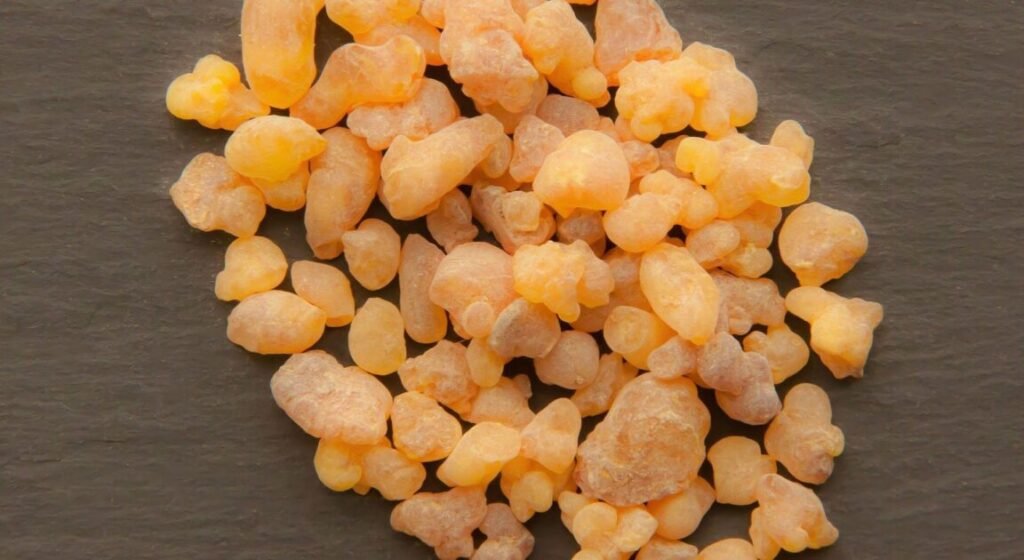
The resin extract of the Boswellia tree is used to make Frankincense essential oil. It smells musky and sweet.
How to use: Apply Frankincense oil on your hands or feet after diluting it. You can use Frankincense essential oil in a diffuser as well.
Best used for: According to a study article by csuperb.org, Frankincense essential oil can aid with arthritis inflammation and the symptoms of inflammatory bowel illness.
8. Ylang-Ylang
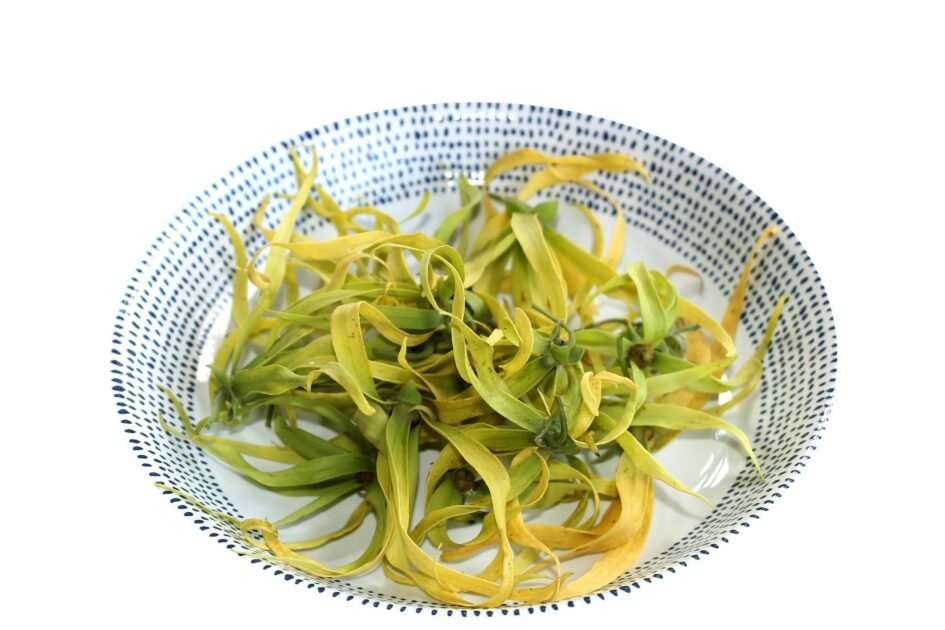
The yellow blossoms of the tropical Cananga tree are used to make ylang-ylang. It smells pleasant, fruity, or floral. Aromatherapy can help raise a person’s mood by using ylang-ylang. According to a study by the National library of medicine, it may also help decrease blood pressure and has a soothing impact. And it is one of the best essential oils for mental health.
How to use: Apply diluted Ylang-Ylang on your skin, inhale directly or add to a room diffuser.
Best used for: According to a study by Online Library, antidepressant effects of Ylang-Ylang can be used to help treat depression. Some people may also use Ylang-Ylang as an aphrodisiac.
9. Vetiver
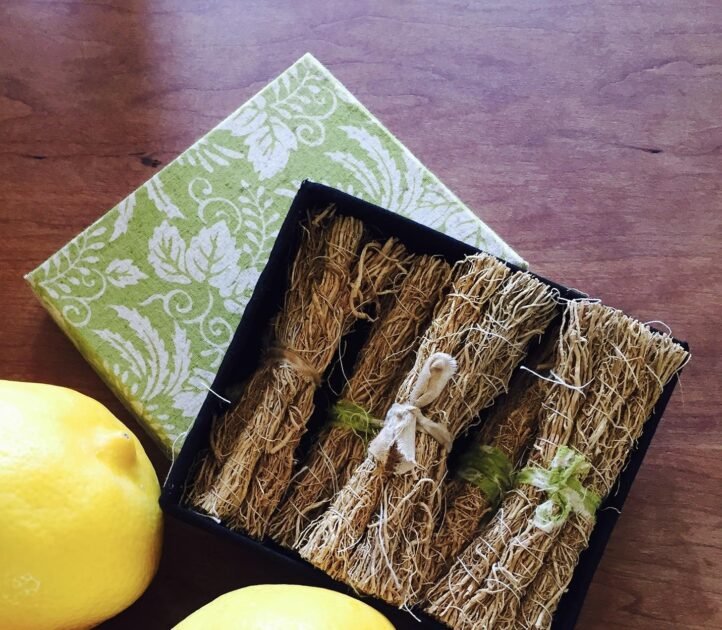
Vetiver is less well-known than other essential oils, but that doesn’t mean it’s less potent. It’s sometimes referred to as khus oil. Vetiver oil is extracted from the grassy vetiver plant indigenous to India. It smells nice and earthy.
According to a study by Pubmed, vetiver oil has a calming effect on the nervous system and can aid sleep. As a result, it may help reduce tension and anxiety.
How to use: Apply diluted vetiver oil for a massage or use it in a diffuser to relax.
Best used for: According to an article by News Directions Aromatics, vetiver oil is k According to a study known to enhance immunity and improve skin health. It contains anti-inflammatory qualities, as well.
Conclusion
Before starting an aromatherapy practice, there are a few things to consider. The essential oils help with mental health issues but are not a long-term remedy for major underlying problems. They might only be proven effective as another tool that provides a little extra assistance during particularly trying times.
Tell us your thoughts and opinion on using essential oils for mental health in the comments below.
Although aromatherapy is one best forms of self-care, however, if you are experiencing severe stress or depression, it is recommended that you should consider professional therapy. You can also book an online therapy session if you have a tight schedule and can’t get the best help nearby. To know more about online therapy, click here.
Subscribe to Your Mental Health Pal to keep learning more about mental health.

